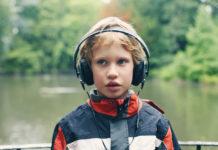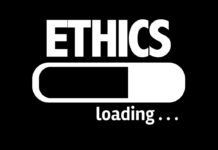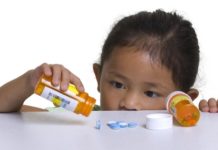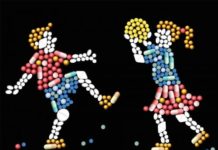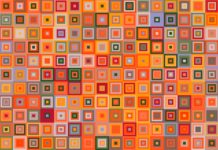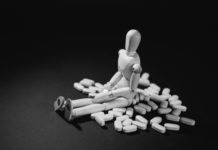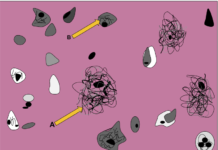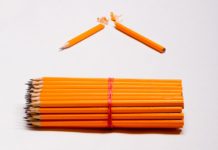Social Adversity, Mental Distress, and the Theatre of the Oppressed
The theatre of the oppressed directly challenges societal problems of oppression. Here the involved learn much from the enactment—concrete possible solutions and possible practices of resistance.
Dual Diagnosis Anonymous: Peer Support for Those Who Need It
What worked for participants is the compassionate, welcoming, inclusive and non-judgmental approach of DDA. It is about peer support, role modelling, hope, building skills… acquiring self-confidence and building a new identity.
Writing Is My Best Medicine
For me, writing is a powerful tool for wellness and healing, whether that involves an escape into science fiction or simply putting my dreams, emotions, memories, and observations on paper.
Insane Medicine, Chapter 4: The Manufacture of Autism Spectrum Disorders (Part 1)
Because the “scientists” who study, categorise, and establish guidelines for autism can’t find anything definitive, they resort to scientism. Over time, it becomes part of our cultural “common sense.”
Does the NASW Code of Ethics Prohibit Peer Work?
An analysis of the National Association of Social Workers Code of Ethics’ regulations on dual relationships: Indications for self-disclosure and problematic consequences for peers entering the social work workforce.
The Mad Priestess: A Call to Healing
A mad priestess kicks shame and stigma in the teeth, knowing that we can do better. We could be leading the charge for healing—please don’t call it “mental illness” anymore—and take our place as the wounded healers.
Stop Saying This, Part 6: It Takes Two, Life’s Not Fair, and More
It’s common that both people are contributing to the issue in one way or another. However, there is at least one instance that renders “it takes two” unavailable for blanket-statement use, and that is abuse.
Increasing Numbers of Children Prescribed Multiple Psychiatric Medications
According to researchers, children are being increasingly prescribed multiple different psychiatric medications.
Insane Medicine, Chapter 3: The Manufacture of ADHD (Part 2)
Sami Timimi discusses the lack of findings for a genetic or neurobiological basis for ADHD, and explores the short- and long-term effects of stimulant drugs.
How Culture Influences Voice Hearing: An Interview with Stanford Anthropologist Tanya Luhrmann
Ayurdhi Dhar interviews Tanya Luhrmann about cultural differences in voice-hearing, diagnosis and damaged identities, and conflicts in psychiatry.
Understanding Mental Illnesses, and Ourselves
I trained in psychiatry in the 1950s. I saw psychiatry switch from trying to help patients to understand themselves better to trying to find a drug that would relieve their symptoms.
Insane Medicine, Chapter 3: The Manufacture of Attention-Deficit/Hyperactivity Disorder (ADHD) (Part 1)
Both the idea that there are some characteristic brain-based abnormalities for those diagnosed with ADHD, and that the medications used have specific properties that target a disease process—like a chemical imbalance—are false.
Promising Preliminary Results from a Small Study of Psilocybin-Assisted Therapy
A new study offers promising results for psilocybin-assisted psychotherapy for depression.
Navigating the Mind: What Medication Cannot Address
I believe there's no harm in giving meds a try—it worked for me. Just be aware that they can only do so much. The rest of the journey requires some navigation and self-direction.
Who’s to Blame for the Lost Soul of Psychiatry?
An interview between Drs. Aftab and Pies reveals a deep mistrust of patients' reports of their own experiences, and devolves into a game of semantics in an attempt to prove psychiatry's relevance.
Researchers: Antidepressant Use in Children Increases Suicide, No Evidence of Benefit
Noted antidepressant researcher, Michael Hengartner, summarizes the latest research on the use of antidepressants in children and adolescents.
Stepping Into One’s Inner Radiant Space
It is hard to step out of the space of diagnoses because of the power it holds. The “doctor” who inflicted on you the awful label of “schizophrenia” or “bipolar” damages you because of the power he holds.
Insane Medicine, Chapter 2: The Scientism of Psychiatry (Part 2)
Paying attention to the science tells us that we need to look beyond formal services. People need connection and meaning as well as basics such as safety, housing, and work.
Not Just Another Stain on the Wall
During my 96-hour hold in the psych unit—despite that I was rational and a danger to no one—I was made to feel ashamed and somehow unclean. I went home feeling more depressed than ever.
When Psych Diagnosis Means Life-or-Death
One label in the DSM that applies to cognitive abilities—“Intellectual Disabilities”—is crucial in determining whether people accused of crimes in some US states will be executed.
The Need for Acknowledgment of Context Within Approaches to Mental Distress
Mental distress is often perceived as something devoid of context, as an individual medical condition or a failure instead of a human condition linked to the social context one exists in.
The Reckoning in Psychiatry Over Protracted Antidepressant Withdrawal
Medically-induced harm—affecting tens of millions of people worldwide—has taken the field decades to take seriously.
The Spin Doctors: “ADHD” Research
We now spend over twenty billion dollars a year on treatment for something called “ADHD.” For that amount of money, we could pay the mid-career salaries of an extra 365,000 teachers or 827,000 teachers’ aides.
Anticholinergic Drugs Increase Risk of Cognitive Decline
A new study finds that anticholinergic drugs, like antidepressants and antipsychotics, are associated with mild cognitive decline.
Insane Medicine, Chapter 2: The Scientism of Psychiatry (Part 1)
Wherever you find mental health services to have expanded, you find a parallel increase in the numbers who have been classed as disabled due to a mental health disorder.




